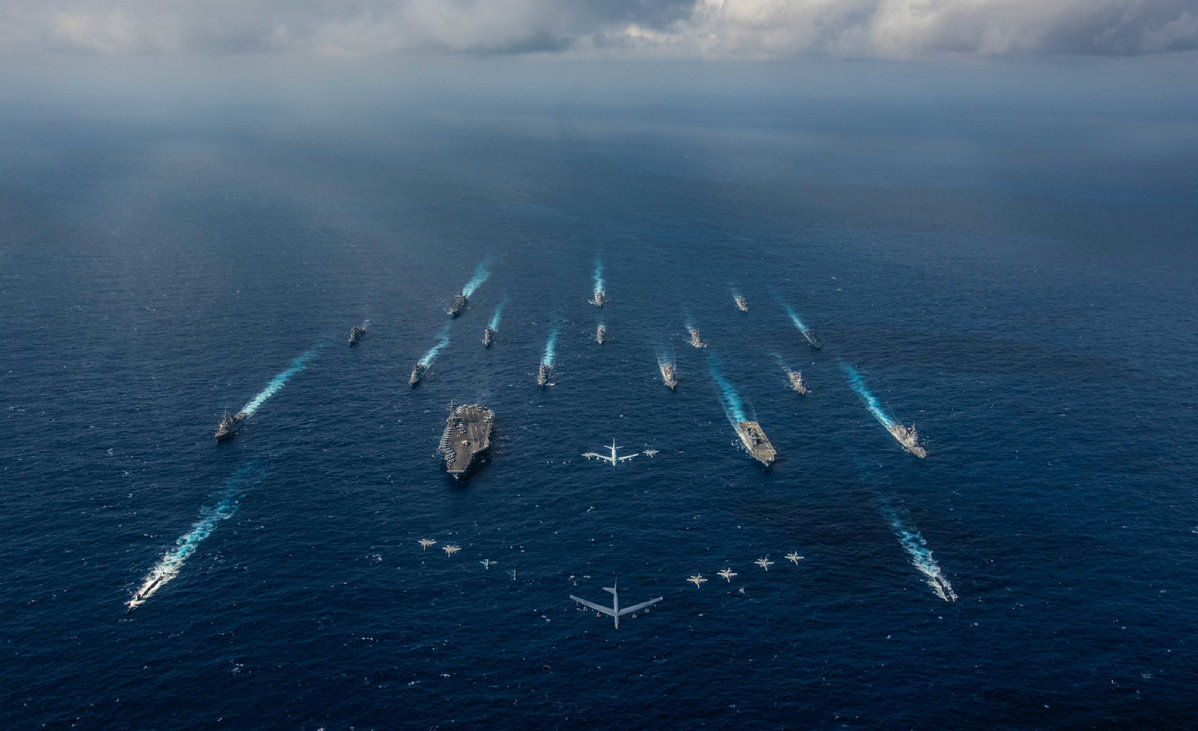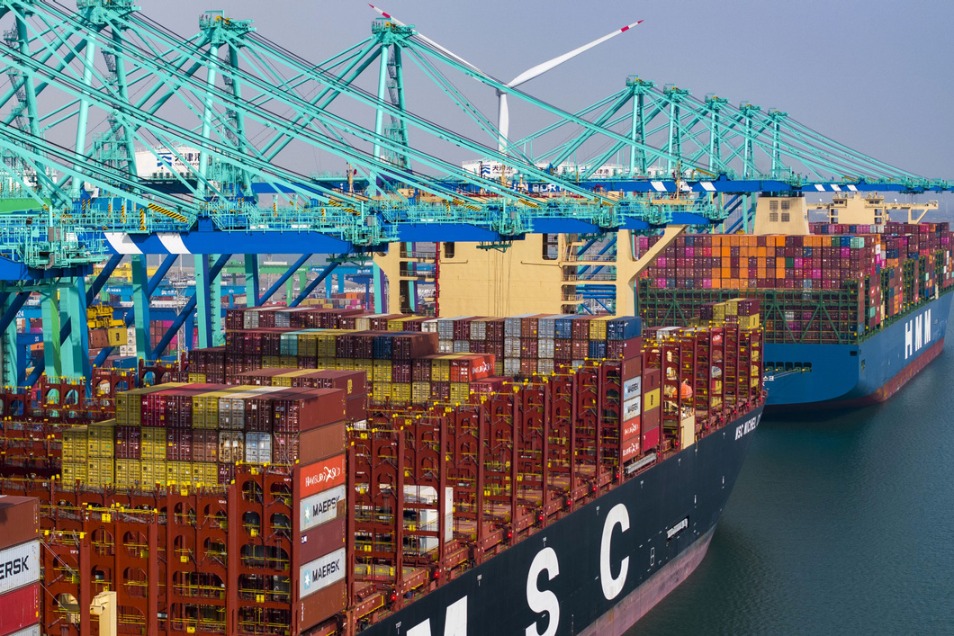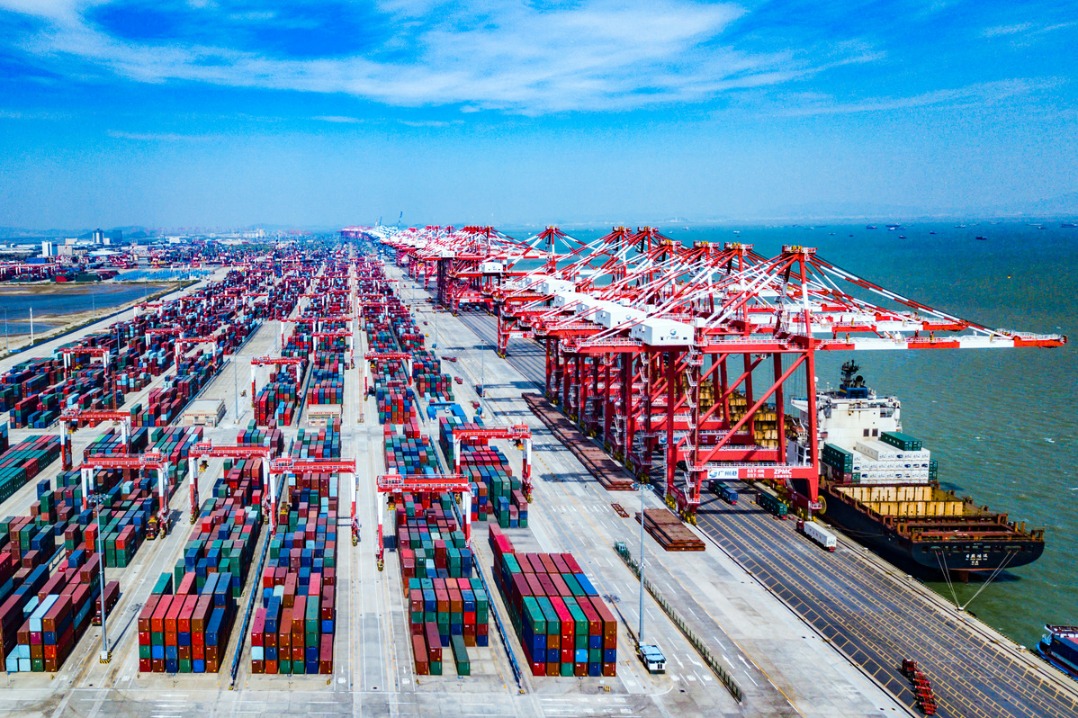Japan seeks new domains in defense decisions
By Victor Teo | China Daily | Updated: 2019-01-16 09:54

Japan's plan to pursue the deployment of aircraft carriers for the first time since the end of World War II and to beef up its capabilities in the "new" domains of warfare in space and cybersphere under its new 10-year defense policy should be contextualized against the wider neoconservative political agenda of "normalizing" Japan.
Tokyo today is desperate not to be written off as a declining power, and is therefore determined to match up to a rising China and the United States as one of the great powers in the world.
Viewed from within Japan, the political predicament and strategic uncertainty that Japan faces as a country today is due to the legal imposition inbuilt into the postwar pacifist constitution. At the heart of the debate is its Article 9, which stipulates that Japan will forever renounce war as a policy option, including the maintenance of any war potential.
The current administration of Shinzo Abe has been promoting the idea that the Constitution is a legal imposition drawn up and forced upon Japan when it was under occupation. Restitution therefore rests on revising Japan's constitution to remove or dilute Article 9, which forsakes Japan's sovereign war-making right.
The pro-revision camp argues that Japan's security and national interests should be decided by the Japanese people today rather than a constitution drawn up and imposed upon the country several decades ago. The unspoken subtext of this search for normality is a quest for global political status commensurate with Japan's economic prowess.
Among the problems, however, at least from Chinese perspective, is in the way the goal is achieved. In order to erode the pacifist tendencies built up over the years across generations, the neo-conservatives in Japan have sought to magnify and exaggerate the Chinese threat through constant demonization via its media and official narratives.
In tandem with the neoconservative aspirations, the Abe administration has interpreted the Constitution and the US-Japan alliance in the least restrictive manner compared with any previous administration. Each successive policy review since the mid-1990s has brought about new measures and interpretations that the bureaucrats suggest are in line with Japan's pacifist Constitution and are therefore "legal", effectively allowing military normalization in stealth mode.
Hence, the conversion of the Izumo to an aircraft carrier, or the implementation of plans to develop Japan into a leader of space-based or cyber weapons has been consistent with Japan's aspirations since the mid-1990s.
What is alarming, however, is the extent to which the bureaucrats are emboldened to override a commonsense approach through their interpretation this time around. Aircraft carriers are not "defensive" weapons. They are designed to project force far beyond the shores of the homeland.
The conversion of the Izumo has important operational significance, as it means Japan could technically project power as far as the Izumo can sail, that is, to the Indian and Atlantic oceans for independent operations or to support US ones, significantly improving the operational capability of the Japanese Self-Defence Forces.
To argue that the two Izumo-class carriers are not "offensive" because they each can only host about 10 F35B fighters (of the 42 that Japan had purportedly ordered) is hardly reassuring, given that it would not take that many F35B fighters to bring destruction to any city or country.
Besides, there is nothing to stop Japan from suggesting at the next review down the line that more F35Bs should be acquired for more Izumo-class carriers, as they would be taken as in line with the pacifist Constitution.
While seemingly innocuous, the political implications are far reaching because this development socializes the Japanese public to the idea that as long as the bureaucrats and politicians say something is legal and in line with the Constitution, the Japanese nation should take their word for it.
There is of course the added benefit of conferring Great Power status. Considerations of political expediency and national prestige certainly seem to have outweighed the respect for the spirit of the pacifist Constitution here.
Traditionally, Japan has been concerned by the prospects of closer US-China relations, and in the Donald Trump era, of being leveraged by Trump excessively. At the same time, a nationalistic US means there is also a chance the US might revert to its isolationist tendencies.
Behind Japan's recent decisions are cold, hard calculations, even if they mean diversion from the pacifist Constitution.
Victor Teo is assistant professor at the Department of Japanese Studies at the University of Hong Kong.
























